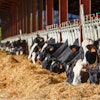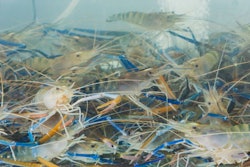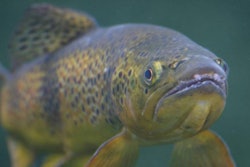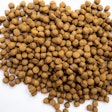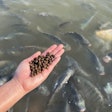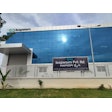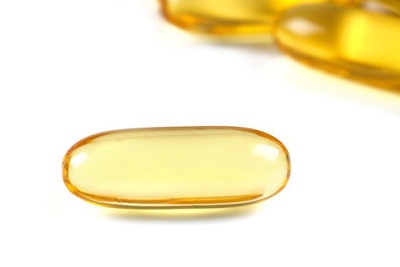
A group of international innovators hope to stave off a feed industry bottleneck by accomplishing what has to date proven nigh impossible: developing an alternative to fish oil that is nutritious, economic and, most importantly, doesn’t contain any fish.
The four companies have come together for a bit of friendly competition under the supervision of the F3 Future of Fish Feed Challenge, which aims to accelerate the development of scalable fish-free feed alternatives to bolster the sustainability of global food systems. Though the project remains in its early stages, the contest’s leaders say the results so far are quite promising, raising hope that a viable feed ingredient is just around the corner.
Despite the rising popularity of seafood — or perhaps because of it — the industry faces a major sustainability problem, according to Michael Tlusty, one of the contest judges and an associate professor of sustainability and food solutions at the University of Massachusetts Boston. Fish and other animals need the essential fatty acids contained within fish oil to thrive, and fish oil continues to be extracted almost exclusively from fish. This interdependence, Tlusty said, limits the world’s capacity to produce seafood.
“The way seafood demand is growing, and the fact that it’s important for health — we’re going to have to supply more seafood,” said Sunil Kadri, CEO of Aquaculture Innovation, one of the challenge contestants. “The only way to do that is going to be aquaculture, and we need fish oils for that.”
U.K.-based Aquaculture Innovation is joined in the competition by the Netherlands’ Veramaris and two Chinese companies, Shen Zhen Alpha Feed and Guangdong Evergreen Feed.
Competition's first round a 'reality check'
The competition’s first round, which started in 2016 with eight contestants vying to create and successfully market a viable fish meal alternative, was a “reality check on everybody’s beliefs,” Tlusty said. Despite a perception that viable alternatives were available and simply lacked industry acceptances, he said, many of the first competitors failed to turn in a product sample for nutritional analysis.
“There really is a lack of functional alternatives out there,” Tlusty said. And he expects fish oil could prove even more challenging — and more critical.
Aquafeed consumes 75 percent of the world’s total fish oil production, according to the Marine Ingredients Organization. A proper substitute requires a precise balance of fatty acids that is rare in fish-free substitutes. And you can’t just reduce the amount of fish oil in aquafeed, according to Rick Barrows, a fish nutritionist and the chief scientific officer at the F3 Challenge. While the fish themselves continue to thrive, research has shown that the fish contain fewer fatty acids themselves when raised with insufficient fish oil — a fact that has turned consumers off of farmed fish products.
Large-scale production a challenge
It’s not just the nutritional specifications that make developing a viable alternative difficult, Kadri said. Alternatives made with algae or GMO grains exist, but they’re mostly used to produce supplements for humans. Achieving the large-scale production that is necessary to supply the feed industry has proven a challenge; reaching a realistic price point for feed even more so.
“We use an algal technology, so we’re growing algae and making oil from it,” Kadri said. “It’s very much sustainable, but comes in at a high price. For now, anyway, it’s going to be confined to being a niche ingredient.”
This is why the F3 contest is judged not only on the quality of product, but on the contestants’ ability to sell their product. Price, according to Barrows, has long been the insurmountable hurdle for fish oil alternatives. The high cost of natural fish oil is what inspired researchers to begin investigating alternatives more than 30 years ago. Now, Barrows said, the urgency has only increased, with the specter of oil shortages threatening to push prices even higher.
While he can’t say much until the final contest results are released in September, Barrows said the results so far have him feeling “very excited” about the possibility that they will identify a viable fish-free oil product.
Kadri agrees. “The technology is there. It’s a question of resources, largely time,” he said. “It’s not going to be today, but it is going to be tomorrow.”

